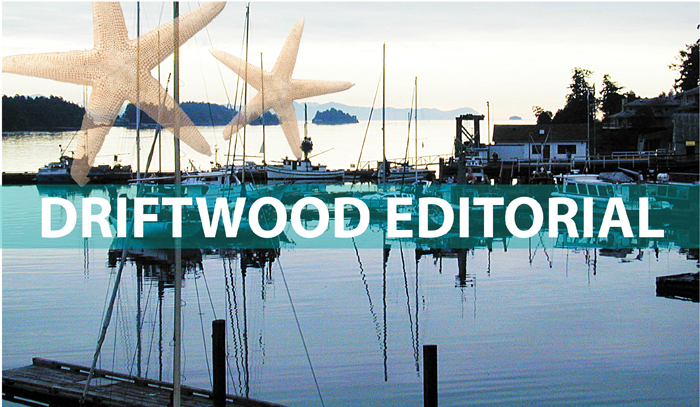It should go without saying, we see little chance of Ganges Harbour usurping the title of “best swimming spot on Salt Spring Island.”
And if readers are bemused by the notion of Island Health and the CRD using recreational beach water quality testing to check whether the busiest harbour in the Southern Gulf Islands is suitable for swimming, just imagine how it felt for a newspaper to report it.
Context, of course, is everything; in the context of the Clean and Safe Harbours Initiative (CASHI) making the request — and with that group’s oft-stated concern that liveaboard residents are dumping their wastewater overboard and polluting Ganges Harbour — checking for indicator bacteria whose presence suggests fecal matter in the water makes perfect sense.
The question CASHI asked was answered: yes, there is likely pollution from human waste in the harbour. A low enough level was found that, in the context of an ocean beach where people actually wanted to swim, Island Health would give the green light.
But the answer in this case is less illuminating than the question.
Latin scholars will recognize post hoc ergo propter hoc — “after this, therefore because of this” — a logical fallacy that seems to raise its head whenever simple solutions are presented to solve complex problems. In context, CASHI’s question seems to carry an assumption: if there is pollution in Ganges Harbour, some must be from the liveaboards, and regulating the liveaboards will help solve the pollution problem.
But Ganges Harbour’s environmental problems are complex, and the contributors to them myriad. Even taking the highest estimates for the numbers living afloat, their impacts are surely dwarfed by countless numbers of recreational and fishing vessels motoring in and out of the harbour year-round, and other activities there.
Assigning responsibility is difficult, and complex. There is no practical way to determine the provenance of every sack of garbage. By the time a vessel becomes derelict and sinks, the owner is usually long gone. A transient boater dumping waste or garbage on their way in or out is nearly impossible to detect.
The liveaboard population — often poorly resourced, and usually stationary — is an easy target. If we want to incrementally address pollution in the harbour, given the context of an affordable housing shortage, we should aim elsewhere.


I totally agree. A mass of bobbing boats with captains from all over come through the long safe harbour…guzzling their motorized vessels in and out with all kinds of infractions despite being careful. Just the make up of such a “desirable recipe ” in an inviting harbour. Once there were herring which I think would be possible only if no boats ever entered here. But that absolutely is not going to happen.
What I propose is a facility that takes on a refuse that all boat owners acquire and have a facility that processes it … Yet there must be some sort of incentive to bring such ‘dark matter” for disposal… Well paid jobs and positive outcomes that cause perhaps gardens, yet how can a society carry on volunteer work … It needs more than this…